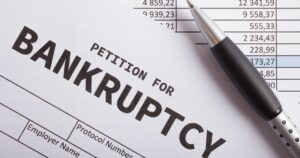No one goes through life with the intention of filing for bankruptcy. It is easy to make mistakes before and during the process. What are common mistakes to avoid before filing for bankruptcy?
While these mistakes might seem minor, they could be detrimental to your bankruptcy case – and even result in a dismissal. It is always best that you work with a bankruptcy attorney because an attorney is more than aware of these common mistakes and can ensure you do not accidentally commit one.
What Common Mistakes Do Consumers Make When Filing their Bankruptcy Case?
Even the most educated person can make a mistake when filing for bankruptcy. Therefore, if you want to streamline your bankruptcy case and avoid it being dismissed and having to start over, be aware of the most common mistakes others have made in the past.
- Paying a loan due to a friend or family member over creditors. Bankruptcy laws are designed to protect consumers, but also creditors from unnecessary losses. Sometimes a debtor will pay loans to friends and family members before filing for bankruptcy. By doing this, the debtor is depriving creditors of potential payments. Family, friends, and business partners who have a personal relationship with a debtor are known as “inside creditors,” and any transfer of funds to these parties could result in a bankruptcy trustee suing that party to recollect money paid. For example, you received a holiday bonus from work for $500. You gave the entire bonus to your brother who loaned you money. Then, the next month you file for bankruptcy. Because it has been less than 12 months since you paid the inside creditor and filed for bankruptcy, the trustee could sue your brother for that $500.
- Incurring more debts after you have decided to file for bankruptcy. If you are filing for bankruptcy, you are already in a poor financial situation and need help getting out. You are over your head with debt obligations each month; therefore, you have no reason to charge further debt. Some consumers will charge up credit cards, take out loans, and neglect other obligations knowing that they are filing for bankruptcy. Taking loans or using credit cards in this way is a crime because you are knowingly using credit that you have no intention of paying off.
- Transferring property or personal assets to protect them from a bankruptcy liquidation. Many consumers fear that their personal property will be liquidated when they file for bankruptcy. While some property can be liquidated, most personal property is exempt up to a certain amount, meaning you could keep your family home and vehicle. Transferring that property to another family member to protect it from liquidation gives the trustee grounds to void the transfer and collect the property.
- Ignoring pending lawsuits. If you are planning to file for bankruptcy, you still must address pending lawsuits already filed by creditors. Your bankruptcy attorney can help you with these lawsuits, but never disregard them entirely.
- Withholding information from a bankruptcy attorney. Never withhold any information from your bankruptcy attorney about your debts or financial situation. Your attorney is there to help you, but when you keep information from him or her, they cannot help you file properly or protect your assets. Supplying incorrect or false information in a bankruptcy case is a crime, and you could face criminal penalties including jail or prison plus a $250,000 fine.
- Do not drain your retirement account. Your retirement account should be protected during a bankruptcy; therefore, do not try to drain it to save it.
- Do not file if you are about to receive an inheritance. If you are about to receive an inheritance, even if that inheritance is an asset and not cash, you should reconsider bankruptcy. When you receive an inheritance, it is subject to liquidation in a bankruptcy case; therefore, you could lose that inheritance.
- Do not fail to pay or file your tax returns. If you have not filed taxes for the past two years up to your bankruptcy date you might have a difficult time succeeding with Chapter 7 bankruptcy. Tax returns help the court assess your income and decide if you qualify to file for Chapter 7.
- Do not wait too long to file. While you do not want to claim bankruptcy too soon, you also do not want to wait too long. Once you realize that your income is not sufficient to pay down your debts or you are falling into collections, you should contact an attorney to at least explore your options.
- Failing to complete the credit counseling sessions. Before you can file for bankruptcy you are required to attend credit counseling. You must complete the sessions within 180 days of when you file, and you must submit a certificate of completion when you file. The courts will dismiss your bankruptcy case if you do not complete this step; therefore, do not think you can skip and still get your bankruptcy done.
The Biggest Mistake of All: Not Working with an Attorney
Bankruptcy is not something you should do yourself. Even though there are DIY forms online and plenty of websites telling you the process, the only way to fully protect your assets and use exemptions is to work with an attorney that has experience handling Chapter 13 and Chapter 7 bankruptcy cases.
Our attorneys can help you with your bankruptcy case. We start with a bankruptcy consultation that assesses your financial situation and helps decide which type of bankruptcy is best. Then, we help file the paperwork, attend the meeting of the creditors, and ultimately streamline the process.
Contact us today to move your life and finances forward.

